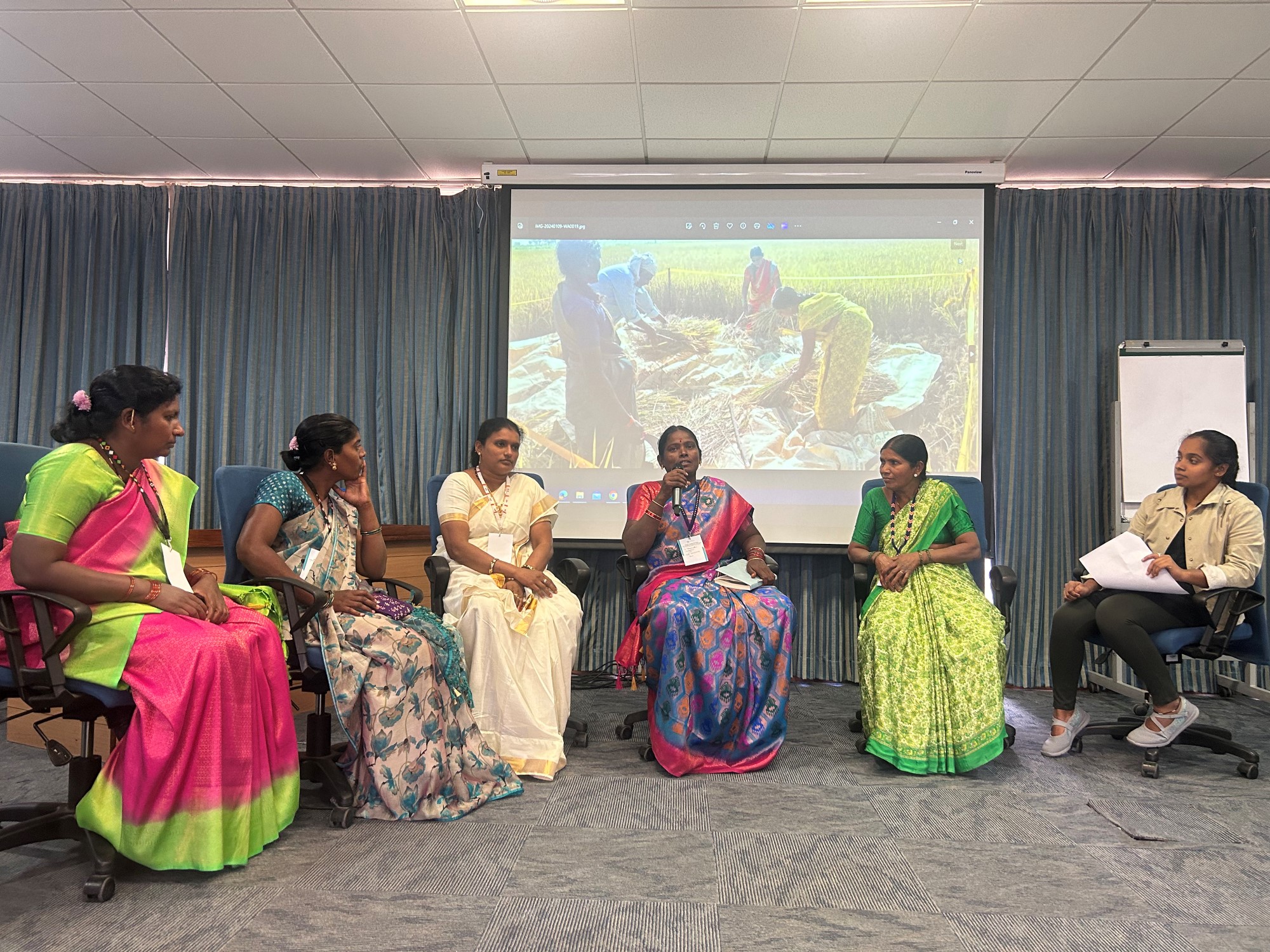CGIAR Seed Equal Initiative highlights women and smallholder farmers’ inclusion in seed information and delivery

09-10 January 2024 (HYDERABAD, India) – The International Rice Research Institute (IRRI) organized a gender-responsive seed information and delivery pathways workshop on 9 and 10 January 2024 in Hyderabad. The activity was a part of the Work Package 6 of the CGIAR Seed Equal Initiative which focuses on increasing women's and marginalized farmers' access to seeds of improved, climate-resilient, and market-preferred varieties to improve their agricultural productivity and nutritional security.
The workshop aimed to explore the systems and strategies that are most conducive to providing women and smallholder farmers access to quality seeds as well as timely and accurate information about seeds.
Ranjitha Puskur, Lead of WP6 shared that, “while women play an important role in agricultural production and seed management, they tend to have limited access to sources of information about seed and varieties and also the seed itself. This is due to the various social and gender norms like limited mobility, access to resources, and institutional networks.”
Therefore, it is important to ensure that the seed information and distribution channels are accessible to women, so they can make informed choices and participate in decision-making. “This workshop was a step towards identifying some of these pathways in the Indian context," she continues.
The workshop provided a space for obtaining nuanced and rigorous insights on promoting equity within seed systems. It foregrounded the need for further research and discussions specifically on seed information and delivery pathways that are responsive to the needs of women and smallholder farmers.
Diverse stakeholders including farmers, government officials, private seed companies, scientists, and researchers working in seed systems attended the workshop. There were several dialogues on promising collaborations, interventions, and innovations as well as the sharing of diverse perspectives and insights on creating gender-responsive seed information and delivery pathways.
The key takeaway from the workshop is that there is a need to emphasize women and smallholder farmers’ inclusion by developing more culturally sensitive and context- and needs-specific information pathways about seed systems.